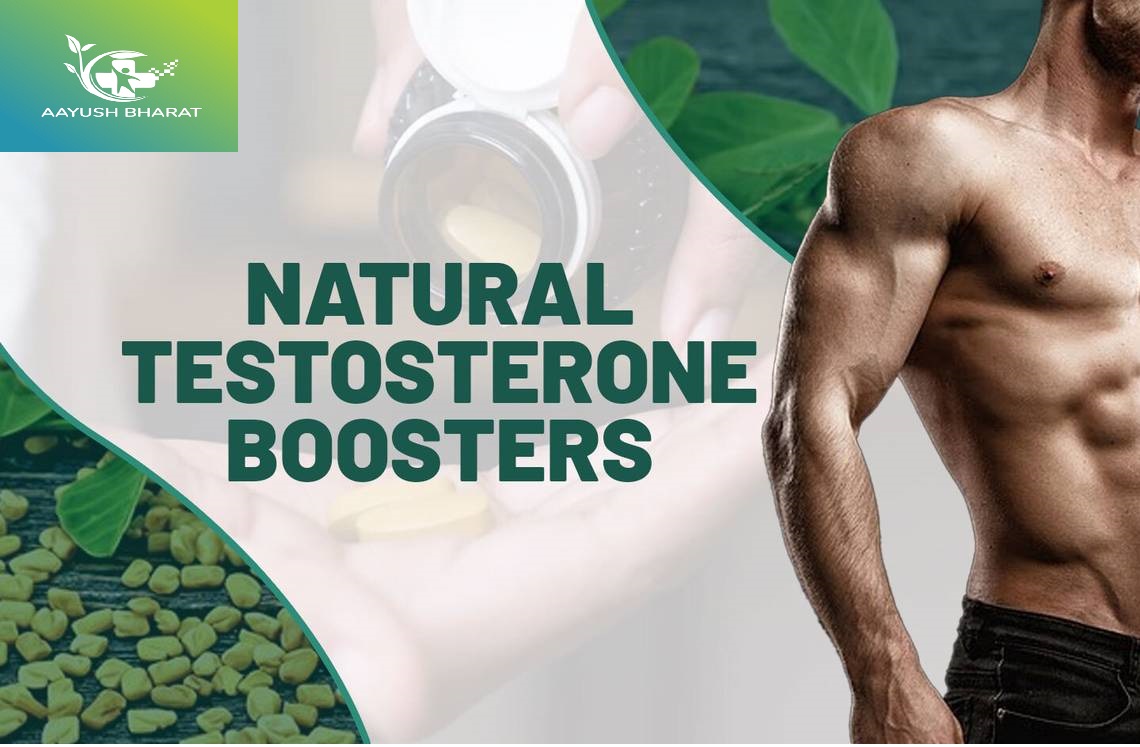
Testosterone boosters have gained significant popularity as supplementary substances that claim to increase testosterone levels in the blood. Testosterone, the primary male sex hormone, plays a crucial role in male sexuality, muscle mass development, facial hair growth, libido, and sperm production. However, as men age, testosterone production gradually decreases, leading to various physiological and psychological changes such as a decrease in sex drive, erectile dysfunction, fatigue, and low energy levels. In an attempt to address these symptoms and improve their overall well-being, many individuals turn to testosterone boosters.
The Role of Testosterone in the Body:
Testosterone is a hormone has a significant role in the male body. It is responsible for numerous physiological functions, including the development of muscle mass, bone density, and the activation of the nervous system, which contributes to increased power, strength, and mood. Additionally, testosterone influences libido, fertility, and the production of red blood cells. Maintaining optimal testosterone levels is essential for overall health and vitality in men.
Natural Ways to Boost Testosterone:
While testosterone boosters are widely available, there are also natural methods to enhance testosterone levels. Lifestyle choices and dietary habits can significantly impact testosterone production. Certain foods, often referred to as “testosterone foods,” are rich in vitamins, antioxidants, and minerals like zinc, which support testosterone production. Regular exercise, adequate sleep, stress management, and a balanced diet can also contribute to maintaining healthy testosterone levels.
Ayurveda and Testosterone Boosters:
In Ayurveda, an ancient Indian system of medicine, herbs and natural remedies have long been used to support hormonal balance, including testosterone. Ayurvedic practitioners often recommend herbs such as ashwagandha, shilajit, safed musli, gokshura, and vidarikanda, which are believed to have testosterone-boosting properties. These herbs are often included in Ayurvedic formulations aimed at improving male sexual health and vitality. However, it is important to note that scientific research on the effectiveness and safety of these herbs specifically as testosterone boosters is still limited. While some studies suggest potential benefits, further research is needed to establish their efficacy.
Homeopathy and Testosterone Boosters:
Homeopathy, another alternative system of medicine, also offers remedies that claim to address hormonal imbalances, including low testosterone. Homeopathic practitioners prescribe individualized remedies based on the patient’s symptoms, considering the holistic approach to healing. Common homeopathic remedies used for low testosterone include Agnus castus, Selenium, Nuphar luteum, and Lycopodium. However, it is essential to approach homeopathic remedies with caution, as the evidence supporting their efficacy in increasing testosterone levels is primarily anecdotal and lacks scientific validation. Consulting with a qualified homeopath can provide personalized guidance and treatment options.
Safety and Effectiveness of Testosterone Boosters:
When considering testosterone boosters, it is crucial to be cautious about their safety and effectiveness. Unlike pharmaceutical drugs, testosterone boosters are not regulated by the Indian regulatory authorities such as the Central Drugs Standard Control Organization (CDSCO) or the Ayurveda, Yoga & Naturopathy, Unani, Siddha, and Homoeopathy (AYUSH) Ministry. This lack of regulation means that the quality and safety of these products can vary significantly. It is crucial to conduct thorough research, read user reviews, and consult with qualified Ayurvedic practitioners or homeopaths who have expertise in testosterone-related concerns.
Potential Risks and Side Effects:
Testosterone boosters, whether in the form of herbs, Ayurvedic formulations, or homeopathic remedies, may carry potential risks and side effects.
Potential Risks and Side Effects:
Testosterone boosters, whether in the form of herbs, Ayurvedic formulations, or homeopathic remedies, may carry potential risks and side effects. It is essential to be aware of these risks before considering their use. Some potential risks associated with testosterone boosters include:
Hormonal Imbalance:
Artificially increasing testosterone levels can disrupt the delicate hormonal balance in the body. This imbalance may lead to adverse effects on other hormone systems, including estrogen and cortisol.
Prostate Health:
There is a concern that testosterone boosters may exacerbate existing prostate conditions or increase the risk of developing prostate issues. It is crucial for individuals with prostate concerns to consult with a healthcare professional before using testosterone boosters.
Cardiovascular Health:
Testosterone plays a role in cardiovascular health, and altering its levels may have an impact on the heart and blood vessels. Some studies suggest a potential association between testosterone therapy and an increased risk of cardiovascular events such as heart attacks and strokes.
Liver Toxicity:
Certain testosterone boosters, particularly those containing synthetic or potentially harmful ingredients, may pose a risk to liver health. Regular monitoring of liver function is advisable when using testosterone boosters.
Mood Changes and Aggression:
Testosterone is known to influence mood and behavior. Altering testosterone levels may lead to mood swings, irritability, and even increased aggression in some individuals.
It is important to emphasize that the risks and side effects mentioned above are not necessarily applicable to all testosterone boosters or individuals. However, it is crucial to be informed and exercise caution when considering these products, especially those that lack scientific validation or regulatory oversight.
Conclusion:
Testosterone boosters continue to attract individuals seeking to address the symptoms associated with declining testosterone levels. While natural lifestyle modifications and Ayurvedic or homeopathic remedies may offer alternative approaches, their efficacy and safety require further scientific research. It is essential to consult with qualified healthcare professionals, such as Ayurvedic practitioners or homeopaths, who specialize in testosterone-related concerns. Moreover, individuals should remain vigilant about the quality and safety of testosterone boosters, considering the lack of regulatory oversight in the market. Prioritizing informed decision-making and comprehensive research will help individuals make choices that align with their health and well-being goals.

0 Comments